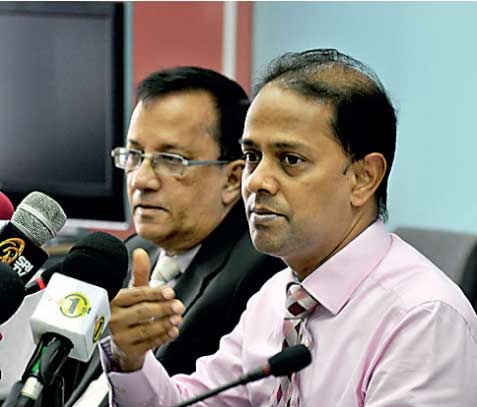Tuesday Feb 17, 2026
Tuesday Feb 17, 2026
Wednesday, 19 October 2016 00:01 - - {{hitsCtrl.values.hits}}
 With the introduction of a new regulatory framework by the Public Utility Commission of Sri Lanka (PUCSL), the electricity supply sector will soon be introduced to minimum standards for greater reliability, safety and quality of service while giving consumers the opportunity to claim compensation for damages caused by supply failures.
With the introduction of a new regulatory framework by the Public Utility Commission of Sri Lanka (PUCSL), the electricity supply sector will soon be introduced to minimum standards for greater reliability, safety and quality of service while giving consumers the opportunity to claim compensation for damages caused by supply failures.
The measures, set to be implemented within a three-year period, will ensure distribution licensees will comply with standards and quality levels that will be introduced after a sector-wide study next year.
The regulations come after much discussion with the Power and Renewable Ministry following concerns over the practicality of imposing such regulations and their limitations when they were first proposed in 2012, PUCSL Director General Damitha Kumarasinghe told Daily FT.
“We are hoping the rules will keep the distribution licensees in check. Consumers can make a complaint to us and we will follow up,” Kumarasinghe said.
The regulations were gazetted in July to introduce new rules on electricity distribution, transmission standards, electricity safety, quality and continuity regulations and utility-driven Demand Side Management (DMS) regulations and will be implemented over the next three years.
Additionally, instructions have been issued to licensees to install an auto monitoring system accessible to PUCSL, to monitor the supply and performance of the electricity distributors which will enable the regulating body to take action on failures to meet standards.
The regulations will also give room for consumers to obtain compensation for damages caused by abnormal voltages in electricity supply and phase reversals in the distribution system from 13 January next year.
Further, after the three-year implementation phase is over, consumers will be able to claim compensation on power outages which exceed the maximum power outage duration to be introduced, while delays in supplying services stipulated in the Gazette will also be compensated through the regulations.